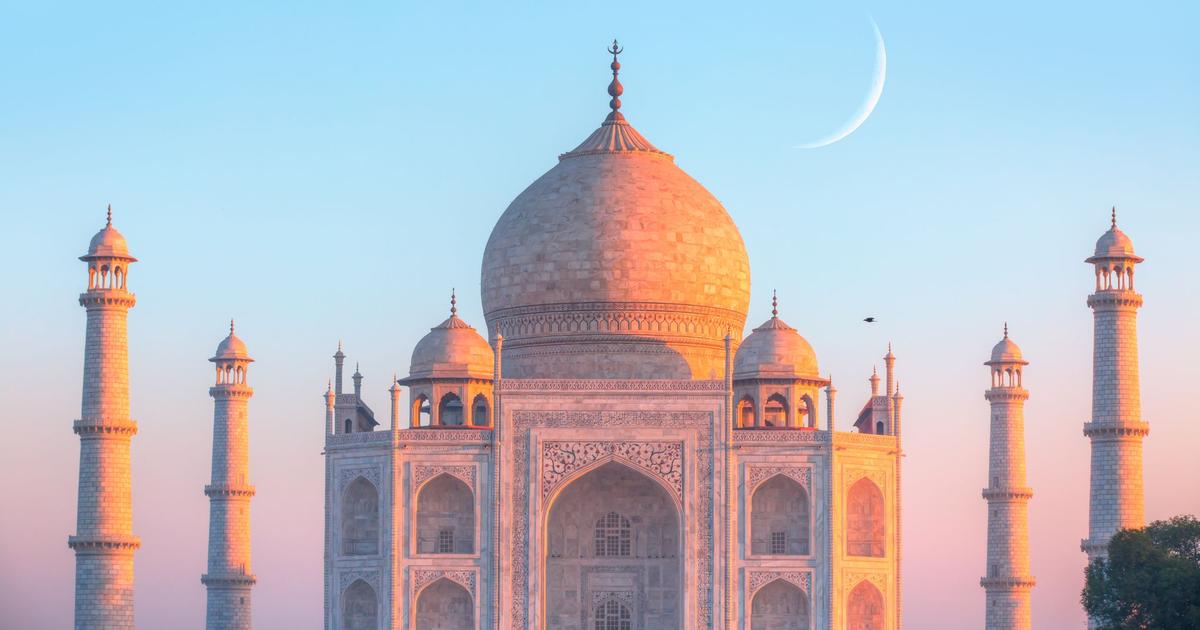If you are told "chakra", "curry" or "Taj Mahal", no doubt you will immediately think of the country of Ravi Shakar.
However, with "sugar", "catamaran" or "veranda", things get complicated.
The contributions of Hindi and Sanskrit, languages at the origin of modern Indian, are very numerous in the French language.
If you dream of a trip to Rajasthan, you won't have to go far.
Le Figaro
offers you a tasty list of words that have traveled the Silk Roads.
See also
Ten words that come to us from Portuguese
●Jungle
The English settlers, arriving on the Indian peninsula, discovered a luxuriant and extremely dense vegetation which was nothing like the woods of Yorkshire.
It was therefore necessary to find a word to designate these surprising forests.
The easiest way was to use the Hindi word "jangle" which became jungle in English before being re-borrowed by the French.
● Anaconda
If the flora knew how to challenge the English, the Indian fauna is not to be outdone.
This is the case with reptiles, which are numerous and particularly tough.
The word anaconda thus appears according to the CNRTL in the 19th century in English and then in French.
Settlers took inspiration from the Sinhalese word 'henaka dayā' which literally means 'whip snake' due to the size of the reptile.
● Catamarans
This is a word that hides its Indian origin well!
There is no doubt that during your next sailing course in Glénans or Quiberon you will shine by remembering that the word catamaran is the result of a contraction of the Tamil words "katta" and "maram" which mean "link" and "wood" respectively. .
● Avatar
Appeared in 1800, the word “avatar” is a derivative of the Sanskrit “avatâra” which refers to all the incarnations of the god Vishnu.
It is not surprising that this word was taken up much later to designate our virtual doubles, like those big blue characters with big ears by director James Cameron.
● Outcast
This is a word that has traveled a lot.
Landed in 1575, “pariah” was conveyed by Italian who took it over from Tamil “parayan”.
The meaning of the word pariah derives, however, from an error made by the Italians who confused the word “parayan” meaning drummer with a close word, “pulliyar”, which designates a man of the lowest caste.
● Pajamas
Faced with a difficult climate and an inhospitable setting, the settlers led a difficult life in the Indian trading posts.
What a delight for the English to slip into one of those typical pants called “pâê-jama” (literally leg garment) at the end of an exhausting day.
Conquered by the softness of the fabric, the colonists therefore brought this invention back to the West and with it, the word "pajamas" which has since designated these cozy outfits which one cannot do without to sleep soundly.
● Shampoo
It is often said that the calm and serenity of the Indians is explained by a regular practice of relaxation techniques.
The word shampoo is proof of this since it comes from the Hindi “châmpo” which means to massage.
It is important to keep in mind that the root “chāmpnā” from which the word comes refers to a very fragrant flower used to create hair oils.
● Sugar
Sugar also comes from the Indian peninsula.
Indeed, if we owe the French version to the Italian word "zucchero", the latter comes from the Hindi term "çârkara" literally meaning "gravel, sand".
It is certainly by analogy of texture that this word was chosen to designate this fundamental ingredient in the preparation of our desserts.
● Tank
Yes, the word tank comes from the Hindi “tankh”.
“Tankh” simply refers to the natural or artificial reservoirs that are used to store rainwater.
It was the English who, to disguise the development of their armored vehicles, decided to use this word at the beginning of the 20th century.
● Veranda
In India, 'varandā' is always used to refer to a balcony with or without a roof.
The word "balkani" is now more common in India, yet it is the word veranda that has been able to impose itself in French!

